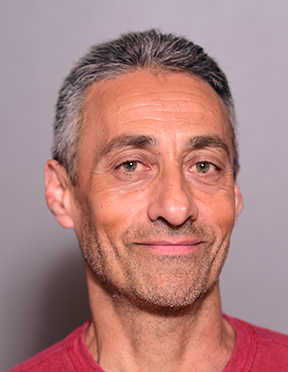Out with MACs and PCs; In with Atoms, Photons, and Quasi-particles
Dr. Sergio Picozzi
Associate Professor of Practice
School of Engineering
Electrical Engineering and Computer Science
The Catholic University of America
Wed, April 23, 2025 - 4:00 PM
In Hannan 108 (Auditorium)
and on Zoom
 Computing is an abstract logico-mathematical process, independent of the laws of nature. However, when executed on a computer, which is a physical system, computing becomes a physical process, subjected to the laws of nature as they apply to that system. Machine computing consists in the system evolving in time according to its own dynamics from an initial state (input) to a final state (output). A programmable computer is a system whose dynamics can be altered in an infinity of ways depending on the program it runs, but always in accordance with the laws of nature that apply to its physical components. Quantum computing is executed on physical systems that evolve in time according to the laws of quantum mechanics, which encompass phenomena such as superposition, entanglement, and non-locality, absent in “classical” systems. Quantum mechanical behavior enables computing processes that are either impossible or that would take an unreasonable amount of time on “classical” electronic computers, thereby promising capabilities and levels of performance surpassing current technologies by many orders of magnitude. However, the same laws of quantum mechanics that enable such wonders, also make quantum computers extremely difficult to control, and current research is navigating adventurously along the boundaries of what is physically possible. We will be discussing the physical nature of quantum computing, its mind-bending promises, and the challenges associated with its controllability.
Computing is an abstract logico-mathematical process, independent of the laws of nature. However, when executed on a computer, which is a physical system, computing becomes a physical process, subjected to the laws of nature as they apply to that system. Machine computing consists in the system evolving in time according to its own dynamics from an initial state (input) to a final state (output). A programmable computer is a system whose dynamics can be altered in an infinity of ways depending on the program it runs, but always in accordance with the laws of nature that apply to its physical components. Quantum computing is executed on physical systems that evolve in time according to the laws of quantum mechanics, which encompass phenomena such as superposition, entanglement, and non-locality, absent in “classical” systems. Quantum mechanical behavior enables computing processes that are either impossible or that would take an unreasonable amount of time on “classical” electronic computers, thereby promising capabilities and levels of performance surpassing current technologies by many orders of magnitude. However, the same laws of quantum mechanics that enable such wonders, also make quantum computers extremely difficult to control, and current research is navigating adventurously along the boundaries of what is physically possible. We will be discussing the physical nature of quantum computing, its mind-bending promises, and the challenges associated with its controllability.
If you have any questions about the Colloquium Series, would like to request disability accommodations or would like to make a donation please contact the Physics Department, cua-physics@cua.edu or call (202) 319-5315.
